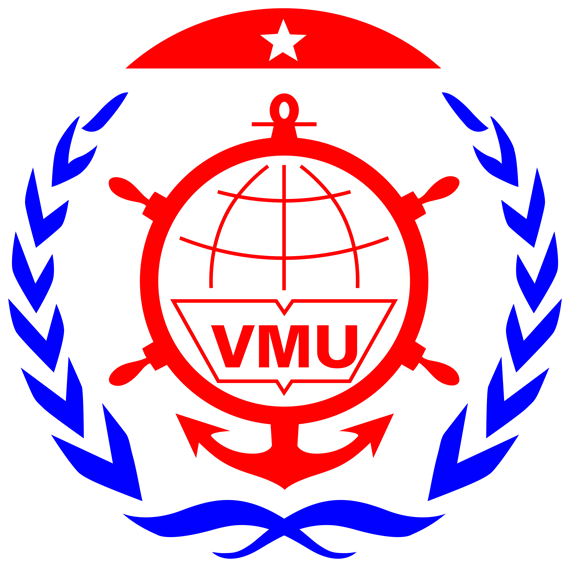1. Introduction
|
Program title: |
Bachelor of Maritime Business |
|
Graduation degree: |
Bachelor's degree |
|
Study model: |
Full-time |
|
Total credits: |
130 |
|
Used language: |
Vietnamese |
|
Training duration: |
4 years (8 semesters) |
|
Responsible Faculty: |
Faculty of Economics |
|
Website: |
|
|
Address: |
Room 212, 2rd floor A4 Building, Vietnam Maritime University 484 Lach Tray - Le Chan - Hai Phong |
The Maritime Business training program at Vietnam Maritime University, designed by the Faculty of Economics, draws upon programs from various esteemed domestic and international universities. Regularly updated to align with industry needs and adhere to the Ministry of Education & Training and Vietnam Maritime University regulations, the program equips learners with essential knowledge, skills, and attitudes. It meets the Vietnamese National Qualifications Framework and international standards, preparing graduates to excel in the 21st-century workforce. Graduates of the program earn a bachelor’s degree in Maritime Business, with the ability to design, implement, and operate maritime transport economic activities. They are dynamic, creative, and adaptable, ready to compete in the Asia-Pacific region and contribute to national development and international integration. Graduates are qualified for roles such as staff, managers of shipping companies, seaports, and logistics companies; lecturers at universities or colleges and scientific research specialists. The program ensures that graduates are well-equipped to meet societal martime business needs and excel in their respective fields.
The Bachelor of Maritime Business program at Vietnam Maritime University offers a comprehensive education that prepares students for successful careers in the shipping and seaport industry. With a focus on both theoretical knowledge and practical skills, graduates are well-equipped to meet the challenges of the modern technological landscape.
2. Curriculum
The Bachelor of Maritime Business program is organized into 8 semesters as follows:
Throughout eight semesters, students undertake a comprehensive curriculum that combines theoretical and practical learning. In Semester I, students gain vitalational knowledge and skills through Algebra, which emphasizes problem-solving, and Principles of Money and Finance, focusing on basic theories of financial currency and financial system structure. Introduction to Economics offers insights into economics basics, while Microecnomics covers an overview of the market's operating mechanism and product price formation. Optional courses include Microsoft Office and General English 1.
Semester II broadens students' knowledge with subjects like Probability theory and Statistology, which focus on random variables and probability distribution laws. Principles of Statistics focus on basic knowledge of statistics, while General Law covers the importance of laws in daily life. Macroeconomics emphasizes concepts, calculations, and meanings of macroeconomic variables, and Taxation covers general theoretical knowledge about taxes and basic contents of current tax laws. Optional courses include General English 2 , Soft Skills 1 and Environment and Environmental Protection.
Semester III delves deeper into topics such as Principles of Accounting which provides the most basic knowledge of Vietnamese accounting. Econometrics sharpens basic knowledge on building, estimating, analyzing regression models and making hypotheses tests, and Fundamentals of Stock Market covers overview of the stock market in the world while General English 3 strengthens language skills. Optional courses include Public Economics and Corporate Culture.
Semester IV explores advanced subjects like Fundamentals of Logistics and Supply Chain Management covers basic knowledge of Logistics and Supply Chain. International trade transactions introduces common international transaction methods, while Insurance concentrates on insurance work. Economics Law delves into Economic Legal issues in practice, and Cargoes in Transport provides a foundation of basic knowledge about goods in transport. Optional courses include Financial Management and Business Management.
In Semester V, students study Maritime Geography, which provides basic geographical knowledge about the world’s seas and oceans and popular shipping routes in the world. Transport Economics is about characteristics of the transport industry. Structures and Theory of Ship equips students the technical and operational characteristics of ships, while Port Economics provides students basic knowledge about seaports, port service market, port management models, and seaport competitiveness. International Payment introduces knowledge related to exchange rates, foreign exchange markets and international payment methods. Development Economics, Corporate Accounting and E-Commerce are optional courses that enhance students' technical expertise.
Semester VI focuses on specialized topics like Research Methodology in Economics which introduces the step-by-step process of conducting scientific research by integrating hardware and software design. Ship’s agent and cargo delivery at port aims to provide basic knowledge and legal framework governing shipping agency and freight forwarding activities in Vietnam. Ship Management reveals basic and systematic knowledge of various management fields including technical management, crew management, finance, insurance, commerce and supply. Shipping Laws focuses on basic knowledge of Vietnam's maritime transport laws and regulations according to international conventions. Optional courses such as Warehouse operations, Port construction, Soft Skill 2 or Introduction to Material Handling & Lifting Equipment offer additional expertise
Semester VII emphasizes specialized subjects of the program. Ship Operations provides in-depth knowledge about the operation of maritime transport vessels according to the forms of transport organization, skills in negotiating and signing transport contracts, charter party, skills in drafting and issuing transport documents, skills in organizing and evaluating shipping voyage. Customs procedures and Port management and Operations provide advanced knowledge and hands-on experience. The Internship 1 provides practical industry experience. Optional courses include Transport Modelling, Organizing labour & wages, Project Management and Creative Entrepreneurship.
In the final semester, students consolidate their learning through practical applications. The Internship 2 immerses them in real-world challenges, and the Dissertation showcases their ability to integrate and apply knowledge from previous semesters.
